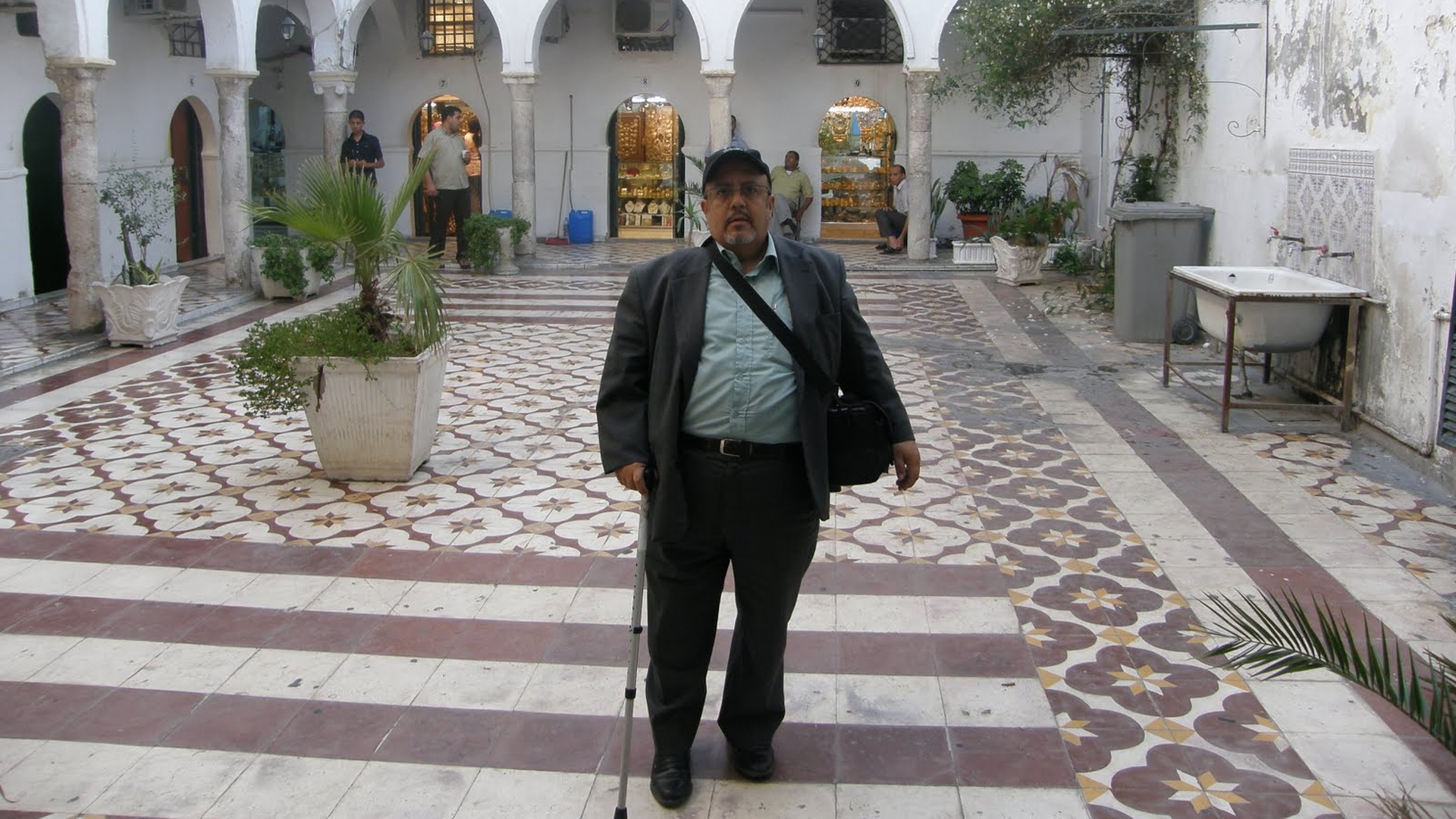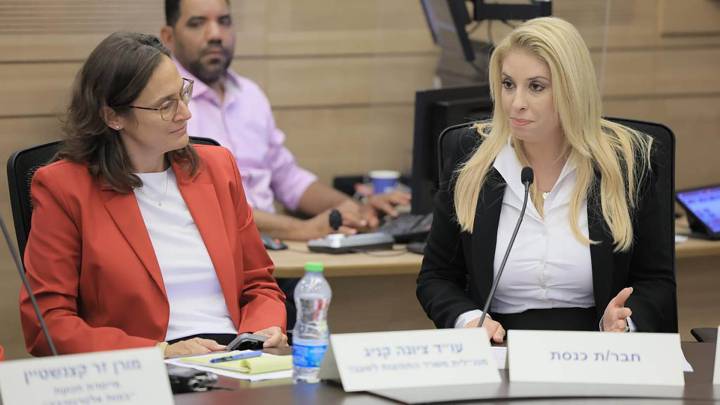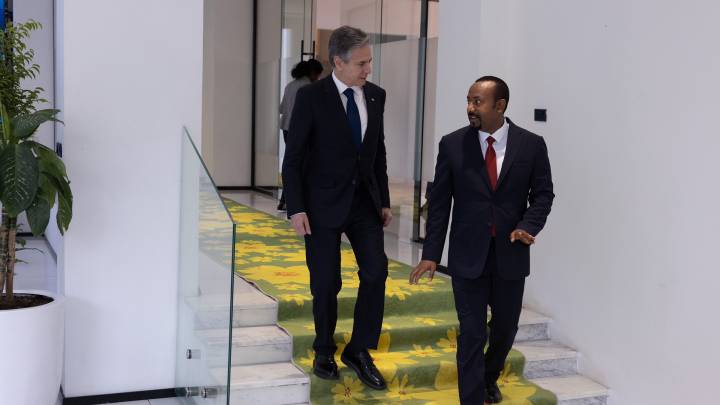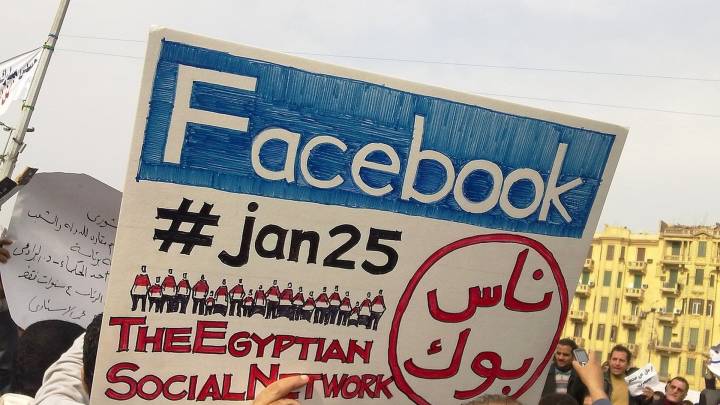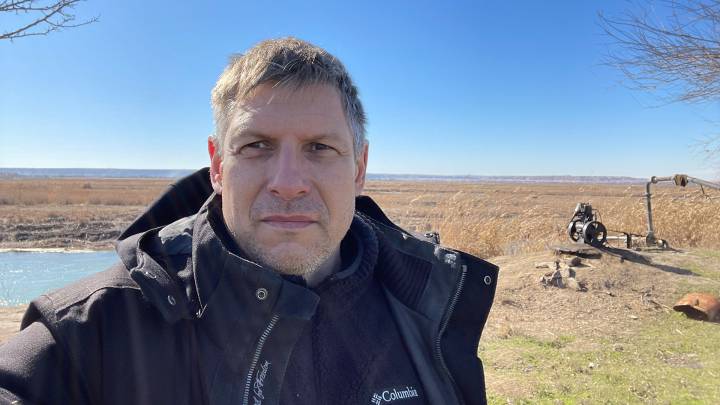Raphael Luzon has been hosted by Gaddafi, kidnapped by Islamists and was asked to help with drafting the new constitution. In this interview he explains why one always needs to play it tough in Libya and why Gaddafi and Berlusconi got along so well.
zenith: You were only a boy when your family had to flee Libya in 1967. What do you remember?
Raphael Luzon: There had been tensions in the Middle East for some time, because of the closing of the Street of Tiran which was a casus belli for Israel. When the war actually broke out the radio was broadcasting the news. The mob immediately went out into the streets. I remember in our hometown Benghazi they attacked all the Jewish shops, also my father’s office. He had been importing medical goods to Benghazi and the Cyrenaica. So, after school me and my sister found ourselves alone in the middle of the mob because my parents could not pick us up. But then a friend saw us and took us home. We hid in the house, the protesters luckily did not manage to get in. After a few hours special forces came and collected all the Jews and brought us to a detention camp outside of the city. We stayed there for 25 days, then we were asked to leave the country. Each person could carry only one suitcase and 20 Libyan pounds, which was worth maybe $30. We immigrated to Italy, because we already spoke the language. Libya’s last 4,000 Jews left the country after a Jewish presence of 2,000 years! From the refugee camp close to Naples many went on to Israel or the United States. However, not all the Jews could flee. My uncle, the brother of my father, his wife and six cousins were taken away by the army and disappeared, until this day we do not know what happened to them, their bodies were never found. Altogether 18 Jews in Tripoli were killed during the pogrom. The war was only an excuse for this. We had been warned in the weeks before, we knew that something was cooking. For instance, our servants told us days before that they would be sorry not to see us again, but we did not fully understand that at the time.
In spite of the tragedy and leaving the country at such an early age you occupied yourself with Libya during all your life. Why?
My friends and I all went to the Instituto de La Salle, a Catholic school in Benghazi. We came from different families with different religions, Jews, Christians, Muslims, Greeks, Maltese. But that never played a role. When the war broke out, we felt that we had nothing to do with it. We were Libyans, not Israelis. When I arrived in Italy and learned what had happened to my uncle and his family, I wanted justice. Also, I had what the Italians call “Mal d’Africa” – the African sickness. That made me always want to go back. Until 1967 we had a decent life there. We were always at the beach! So, I tried for 42 years to go back.
In 2010 Gaddafi invited you to Tripoli. How did you convince him to let you into Libya again?
Instead of asking for compensation I asked for our right to be considered as Libyans. This caused a major debate in the country. So, one day I received a phone call by one of Gaddafi’s advisors extending an invitation to me to visit Tripoli and Benghazi. It was a dream come true. He even asked me to write a list of places that I wanted to see. And they asked me to bring my mother, because in one of my articles I had mentioned that she was sick, and I hoped for her to see her home again before her death. So, my mother, my sister and I went for a trip of five days in July 2010. Two weeks after coming back to London I received another phone call, this time Gaddafi invited me to attend the celebration of the 1stof September, which he called the Day of the Revolution, but which was actually the day of his coup d’état against the king.
How was the meeting?
First of all, I received a VIP treatment, with bodyguards and three cars that took me everywhere I wanted. It was fantastic. I only saw Gaddafi for a few minutes. He looked very bad: unshaven. Like a guy who had fallen out of bed just five minutes earlier. When we spoke, he was gazing into the sky and to the ceiling as if I was not there. But I had good relations with his son Saif al-Islam who organized the trip.
How was the return for your mother?
She was absolutely shocked, positively of course. To see the places where she was born, where she grew up and lived with her family. It was really nice. When we went, she was at the beginning of her dementia. But she could still grasp 80%. We went back to our house in Benghazi which was now occupied by a person who worked for Libyan Airlines, but unfortunately, he was not home so we could see the house only from outside. When we were standing there, I turned around and saw six of the twelve bodyguards with red eyes, as if they were about to cry. So, I asked them, what do you care? They said, we see how you are standing here in front of your home; this makes us very emotional. I was always against dictatorships, but I am very thankful that Gaddafi gave me these visits. I will never forget it.
Why did he invite you?
I asked him the same question. He said: You have always criticised me without insulting me. You also never asked for compensation, only for your citizenship. And I had mentioned my mother, that must have made an impression. But it was also in the period after Gaddafi had given up his chemical weapons and renounced the nuclear weapons program and opened up to the West. Gaddafi, just like every other Libyan politician, believed that the Jews have a big international lobby. That they are immensely powerful, that they have their fingers in everything, like an octopus. So, in order to mend his ties with the Americans he felt he needed the Jews. Many Libyans to this day believe very much in the stereotype of the almighty Jew. I receive many emails in which Libyans say that their suffering is all because they treated the Jews badly after 1967. A punishment from God. They think if the Jews come back everything will be ok.
So now you have been asked as a Jewish representative to assist the Council of Sheikhs in drafting a new constitution.
Yes, I have had numerous meetings. A couple of times in Rome, twice they sent me tickets to fly to Tunisia, twice they came to visit me in London and now we also speak on Skype. At the moment there is a committee which is drafting the new constitution, based on the one from 1951. I have told them that they must include the rights of all minorities, not only the Jews but also the Tubu, the Tuareg and the Amazigh. At the moment we are negotiating whether it should say that all Libyans are equal irrespective of their religion.
How can you help?
What qualifies me is my work record of the last decades. For instance, I have organized an international conference which took place in June 2013 in Rhodes. Ministers from Israel, the Palestinian authority, Iraq and Libya attended. Also, businessmen, Yazidis, Egyptians, Tunisians. They all stayed together for three days, discussing, dancing, eating, it is all documented by Al-Jazeera. So, since then I am considered as a mediator by all the parties. Next year we are planning a conference in Tunisia. I hope we can see progress there. Libya is a country at war and divided into more than 150 tribes. Whatever the international talks, in the end the Libyans need to decide their future.
Do you have hope for the Libyan Jews to get back their stolen possessions?
Yes, I do. But first of all, this war needs to finish. Then we need to find a diplomatic solution. I proposed that the people who have actual proof of their losses should be compensated, but they should be committed to invest at least half of this money inside the country. At the same time, you cannot expect the Jews of Libya to go back and live there. No way, at least not in this generation. All over the world there are now about 120,000 Jews that see themselves as Libyans, all of them are dreaming to go back and visit. There is great potential. Libya needs this investment.
The non-Jewish Italians from Libya are also fighting to regain their assets which they lost when Gaddafi expelled them in 1970. Do you cooperate with them?
Yes, we are very close. Italy can play a major role, because of the past, the present and the future. Both countries are neighbours and gateways, to Africa and to Europe respectively. We saw it during Berlusconi’s time, his policy towards Libya was very clever. He knew that there could be a trade-of: compensation for the 29,000 expelled Italians in exchange for compensation for the colonial crimes. One project was the motorway that Italy agreed to build along the coast from Tunisia to Egypt. Berlusconi understood the importance of Libya, he knew how to speak to Gaddafi. Maybe because they were so similar, they were both sex maniacs! But other Italian leaders like Andreotti also understood the situation. Unlike the current Italian politicians who do not have the necessary experience, they have no fantasy.
Do you have hope for Libya and Israel to reconcile?
Yes, there should be the same kind of relationship as between Israel and Tunisia or Morocco, it does not need to be official. Libya only has one thing to offer: a lot of money that it gets from the oil production, and from the uranium and gold in the South. Libya needs the high-tech that Israel can offer to make the desert bloom. Libya is a huge country, 80% Sahara, so the possible benefits are obvious. It could also be a place for the Palestinians to live.
I am not sure many Palestinians would accept this notion. Anyhow, since more than seven years there is chaos in Libya. When you went there after the revolution you were even kidnapped. What happened?
It was in August 2012, I travelled there with a television crew to film a documentary about the Jews of Libya. I had talked to security people that I knew, and everything was fine, but I had not thought enough about how well known I had become through my TV appearances. So, people started to recognize me in the streets, first in Tripoli, then in Benghazi. Someone then called an Islamist fraction: “Jews have entered Benghazi!” I was in my hotel waiting for the Italian consul, suddenly militiamen with Kalashnikovs arrived, they put me in a Jeep and drove out of the city. At the beginning they did not know that I speak Arabic, so they were debating in front of me whether to shoot me or behead me. And they accused me of being a Mossad spy, the usual. I reacted like a Libyan – by shouting at them that they should be ashamed of themselves, that I was more Libyan than them, that we Jews had been living in the country 600 years before the Arabs did. This confused them. Then the radio started to report that a leader of Libyan Jews had been kidnapped, demonstrations started, demanding to release me. Suddenly my captors turned 180 degrees, now they wanted to protect me against Al-Qaida groups which were looking for me. They did interrogate me about my connections to Israel, to Gaddafi and so forth and then, finally, after eight days and a lot of pressure from the Italian embassy I got my passport back. Since that day some of these guys still send me greetings during the Jewish holidays.
What happened to the camera team which was with you?
When we were in Benghazi in the street filming we were being threatened by a mob. They told the cameraman to stop filming, but he secretly continued. Later the film was also shown on Israeli TV and I received an email from an important Israeli diplomat from the Ministry of Foreign Affairs. He said that they would use this video to train the new diplomats. This is how you have to deal with a mob.
Like a Libyan?
Please do not get me wrong when I say that with Arabs you must never show any kind of fear! If you do you cease to be a man, you have no balls. I told them, you should be ashamed to interrogate me for half an hour without offering me coffee! So, then this guy felt so guilty that he started to shout at the other militiamen, where is his coffee?! In the very end, before they gave me back my passport, they begged me to stay because they wanted to slaughter a lamb for me. But I declined, I said I was vegetarian. The truth is, I am not. But I only eat kosher.
So, this ended on a funny note, but anti-Zionism and anti-Semitism in Libya are no joke. For many Libyans just mentioning Jews stirs up vitriolic hatred.
Yes, especially in the people who are today between 20 and 40 years old. Because they were born during the regime years. They were brainwashed. The Jews are evil, they are all Zionists, they are killing Palestinians, they are stealing the land and all this stuff. There needs to be an education campaign in all the media to inform the people. I was told by ministers that my work and my appearances on Libyan TV have already helped to raise awareness. People start to realise that Jews have lived in Libya for a long time.
When you see the situation of the country, the chaos and the civil war, the extremism and anti-Semitism, do you regret your support for the revolution in 2011?
Supporting a revolution against a dictatorship is always right. But at the same time there is a sentiment also in Libyans today who just want safety and stability. People leave their houses in the morning not knowing whether they can return at night. I do not think Libya is ready for a perfect democracy at this stage, maybe for something like in Morocco but not like in Europe.
How can you have this view when you are assisting in drafting the new democratic constitution?
People have been dealing with it already for six years. Officially all of them want democracy, but under the table they are sabotaging the process. Also, Germany’s efforts and the diplomatic meetings in Berlin will not go anywhere unless one strong Libyan leader emerges. Libya needs someone who is accepted by all sides. The matter can be sorted out only by a Libyan who knows the language, the mentality, the mood and the way of thinking.
Raphael Luzon (65) was 13 years old when he and his family had to flee Libya. Today he lives in London and heads the Union of Libyan Jews with roughly 2,000 members.

